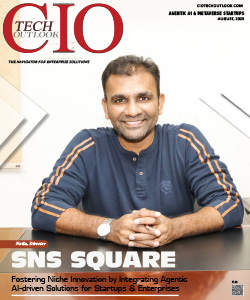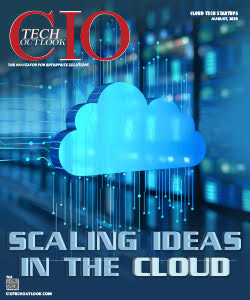Clean tech Trends that will Safeguard the Environment
Vishal Pratap Singh | Saturday, 05 March 2022, 17:38 IST

In the last two decades, global emissions are rising at an alarming rate. As a preventive measure, cities and companies are transitioning towards cleaner resources, fuels, energy and technologies. These innovations enable processes, products and services that reduce negative impacts on environment. Clean technologies are enabling breakthroughs across industries like mobility, construction and manufacturing by replacing energy intensive processes and products, thus lowering their carbon footprints. Switching to renewable energy also reduces the burden on fossil based and polluting energy sources like coal and petroleum significantly, making it the first among clean tech trends.
The global clean technology and sustainability market size was valued at $10.32 billion in 2020 and is projected to reach $74.64 billion by 2030, growing at a CAGR of 21.9 per cent from 2021 to 2030. “For cleaner operations, startups optimize energy usage wherever possible, from large scale applications to an individual level”, says Dhananjay Sharma, CEO, Log 9 Spill Containment. It is also seen that home automation empowers consumers to monitor and control electricity consumption and reduce their carbon footprint.
Renewable Energy
At the present rates of fossil fuel depletion, there is a pressing need for alternative sources of energy that will last longer without causing damage to the environment. Renewable energy sources like solar, wind, geothermal and wave energy are the most popular alternatives. Various industries employ renewable fuels to make their operations cleaner and more sustainable. Moreover, startups are driving sustainable innovations using renewable energy to optimize large scale high carbon operations.
Alternative Mobility
The mobility sector is making great leaps in clean tech with developments such as electric vehicles (EVs). Types of electric vehicles include battery vehicles, hybrid vehicles, hyperloop tech and plug-in hybrid vehicles among others. Furthermore, startups are testing different combinations of sustainable fuels to fully replace conventional automobile fuels. There is one basic example of a traditional fuel alternative known as green hydrogen which is derived by splitting water into hydrogen and oxygen using low carbon energy sources. The mobility sector is also incorporating some other eco-friendly technologies like EV charging stations and AI powered green GPS systems to facilitate decarbonisation.
For example, Peregrine.ai, a German startup, makes the use of video telematics to protect vehicles and drivers from high risk situations on the roads. This innovation has the ability to not only reduce the occurrence of accidents but also offers optimized routes, thus reducing greenhouse gas emissions through safe and efficient fuel use.
Sustainable Automation
Automation is speeding up manual tasks in different sectors like manufacturing, agriculture and transportation. Moreover, automation is highly effective in steering industries towards sustainability. An important application of automation is in building monitoring systems that enable autonomous solutions like smart thermostats to control appliances. Another interesting innovation is the smart electricity strip prevents appliances from going into standby mode and instead shuts them down. Thus, it can be said that this innovation greatly reduces the energy wasted by gadgets when not in use. Sustainable automation also finds applications in a smart factory setting wherein operators use Artificial Intelligence to optimize functions.
Low Carbon Construction
The construction industry is known for releasing harmful pollutants into the environment and for using highly wasteful materials in their processes. However, the construction sector is transitioning to more sustainable and circular practices. Low carbon construction caters to making the building process less harmful and more in-sync with the living nature. It also includes plant walls or exteriors which facilitate cooling. Startups are also incorporating cleaner materials in homes and public spaces to limit energy consumption without compromising on key quality parameters. In addition, they are developing alternatives like hemp based concrete, bamboo flooring and green insulation to replace polluting materials.
Sustainable Waste Management
Safe and sustainable waste management lowers the impact on the environment. Although waste management is an old concept, startups are innovating to either dispose of garbage as effectively as possible or up-cycle it into useful materials to improve the product life cycle. Waste to energy solutions incorporates processes like anaerobic digestion, pyrolysis, incineration and gasification to convert waste into fuel. There are some other trends as well which include wastewater treatment methods such as grey-water recycling, rainwater harvesting and electro-coagulation systems. Chemical recycling and remanufacturing are the other sustainable trends in waste management.
Future of Clean tech
With the rising population and environmental threats increasing, it really is a necessity to increase sustainability efforts across the globe. There are many drastic changes taking place in the environment, so it is need of the hour to take action before matters get worse. The rise of sustainability awareness could be due to a generational shift in the society. Younger generations today are more environmentally conscious and will be more inclined to make sustainable decisions in the coming years. It’s safe to say that clean tech will continue to grow in relevance and hopefully help to drive population towards a more sustainable future.



.jpg)
